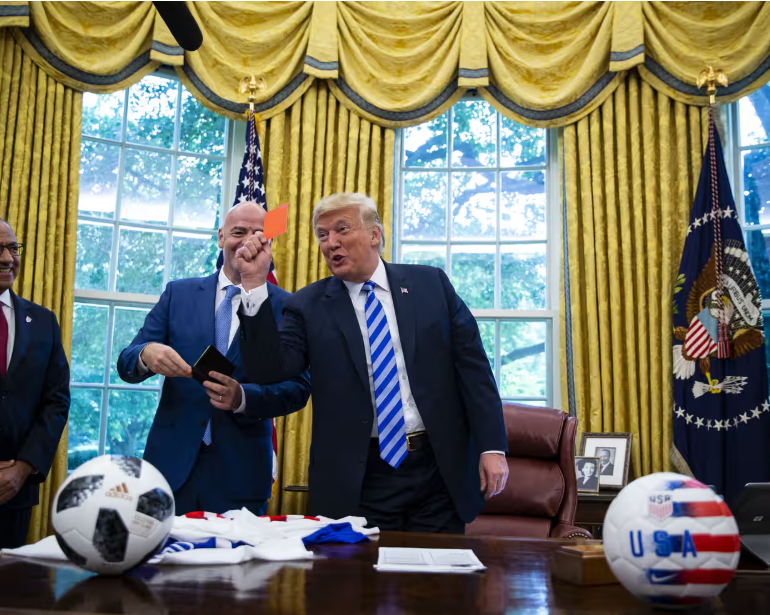President Donald Trump has signed a new travel ban that restricts entry to the U.S. for people from 12 countries and limits travel from seven others. However, the order includes an exception for athletes, coaches, and staff involved in major sports events like the World Cup and the Olympics.
Which Countries Are Affected?
The ban fully restricts travelers from:
- Afghanistan
- Myanmar
- Chad
- Republic of Congo
- Equatorial Guinea
- Eritrea
- Haiti
- Iran
- Libya
- Somalia
- Sudan
- Yemen
Travelers from these countries will face partial restrictions:
- Burundi
- Cuba
- Laos
- Sierra Leone
- Togo
- Turkmenistan
- Venezuela
Sports Exemption
The order states that athletes, coaches, support staff, and their families traveling for events like the 2025 Club World Cup, 2026 FIFA World Cup, or 2028 Olympics will not be affected by the ban.
It is unclear whether FIFA (soccer’s governing body) pushed for this exception. FIFA President Gianni Infantino has recently been seen with Trump, including at a World Cup taskforce meeting.
Impact on Players
Some players from banned countries currently play in U.S. leagues like Major League Soccer (MLS). For example:
- Venezuela has three MLS players in its national team.
- The travel ban starts on June 9, but Venezuela has World Cup qualifiers on June 7 and June 11.
At least 10 players from banned countries are set to play in the 2025 Club World Cup, including:
- Inter Miami’s Telasco Segovia (Venezuela)
- Inter Milan’s Mehdi Taremi (Iran)
- Pachuca’s Salomón Rondón (Venezuela)
World Cup 2026 Qualification Status
Only Iran has already qualified for the 2026 World Cup. Other affected countries still in contention include:
- Venezuela (fighting for a spot in South America)
- Sudan (close to advancing in African qualifiers)
- Haiti (likely to move forward in CONCACAF qualifiers)
This exemption ensures that players and teams from restricted countries can still compete in major tournaments held in the U.S.

